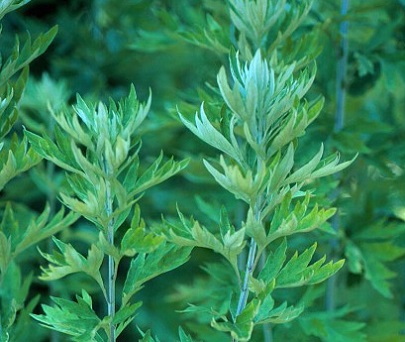Herbs And Phytochemicals: Artemisia-Derived Nanovesicles Mitigates Lung Tissue Damage Caused By SARS-CoV-2 And Flu Viruses!
Nikhil Prasad Fact checked by:Thailand Medical News Apr 21, 2024 11 months, 1 week, 2 days, 38 minutes ago
Herbs And Phytochemicals: Acute lung injury (ALI) and its severe manifestation, acute respiratory distress syndrome (ARDS), represent critical challenges in modern healthcare, especially in the context of severe respiratory infections caused by pathogens like Gram-negative bacteria, influenza A virus (IAV), and the novel coronavirus, SARS-CoV-2. These conditions are characterized by dysregulated immune responses, inflammatory cascades, and extensive lung tissue damage, often leading to high mortality rates. Current treatment strategies for ALI and ARDS primarily focus on supportive care and symptom management, highlighting the urgent need for innovative therapeutic interventions targeting the underlying immune dysregulation and inflammatory processes.
 Artemisia-Derived Nanovesicles Mitigates Lung Tissue Damage Caused By SARS-CoV-2 And Flu Viruses
Artemisia-Derived Nanovesicles Mitigates Lung Tissue Damage Caused By SARS-CoV-2 And Flu Viruses
A recent
Herbs And Phytochemicals study conducted by researchers from Zhejiang Shuren University, Hangzhou-China, Nanjing University of Chinese Medicine-China and Macau University of Science and Technology-China found that artemisia-derived nanovesicles (ADNVs) mitigates lung tissue damage caused by SARS-CoV-2 and flu viruses!
Thailand Medical News would like to add that this study findings are important especially with the impending outbreak involving H5N1 or a derived or recombinant form of it among the general human population.
We also covered past studies showing the merits of artemisia in COVID-19 treatments in the last.
https://www.thailandmedical.news/news/breaking-news-artemisia-annua-german-researchers-confirm-that-extracts-of-the-plant-artemisia-annua-are-active-against-sars-cov-2-coronavirus
https://www.thailandmedical.news/news/covid-19-herbs-american-in-vitro-study-shows-that-herb-extract-of-artemisia-annua-inhibits-sars-cov-2-replication
https://www.thailandmedical.news/news/must-read-covid-19-treatment-calls-for-research-into-sod-3,-artemisia-annua-and-ashwagandha-as-possible-adjuvant-drugs-for-covid-19
The Crucial Role of Alveolar Macrophages (AMs) and Mitochondrial Dysfunction in Lung Pathologies
Alveolar macrophages (AMs) are pivotal in maintaining lung homeostasis, combating pathogens, and orchestrating immune responses within the pulmonary microenvironment. Dysfunctional AMs and impaired mitochondrial function have been implicate
d as key contributors to the pathogenesis of ALI and ARDS. Mitochondria, beyond their role in energy production, regulate immune responses, oxidative balance, and cell survival. Disturbances in mitochondrial function within AMs can lead to increased oxidative stress, inflammatory signaling, and immune dysregulation, contributing significantly to lung pathology and disease progression.
Exploring the Therapeutic Potential of Plant-Derived Nanovesicles
In recent years, plant-derived nanovesicles (PDNVs) have garnered attention as promising candidates for therapeutic interventions due to their biocompatibility, safety, and diverse bioactive properties. These nanovesicles encapsulate a myriad of natural substances, including lipids, DNA, RNA, proteins, and other bioactive molecules, offering a range of functionalities such as anti-inflammatory, antioxidant, and immunoregulatory effects. However, their specific potential in modulating AMs and mitigating lung diseases like ALI and ARDS remains a subject of ongoing exploration and research.
Artemisia-Derived Nanovesicles (ADNVs): A Novel Therapeutic Approach
Artemisia annua, a medicinal plant renowned for its anti-malarial properties, serves as the foundation for developing nanovesicles with therapeutic potential, termed Artemisia-derived nanovesicles (ADNVs). This plant species has been historically recognized for its pharmacological properties, including anti-inflammatory, anti-infective, and metabolism-regulating effects. Building upon this knowledge, researchers have investigated the therapeutic efficacy of ADNVs in alleviating lung immunopathology using preclinical models of ALI induced by bacterial endotoxin, IAV, and SARS-CoV-2 pseudovirus.
Unraveling the Mechanisms of Action of ADNVs
The study elucidated that ADNVs exhibit a remarkable affinity for pulmonary macrophages, particularly AMs, leading to the reprogramming of macrophages into an anti-inflammatory M2 phenotype. This reprogramming process was mediated primarily by gamma-aminobutyric acid (GABA) enclosed within the ADNVs, which acted through specific GABA receptors expressed on macrophages. ADNVs demonstrated the ability to improve mitochondrial integrity and metabolic fitness in stressed macrophages, thereby reducing oxidative stress and dampening inflammatory signaling pathways.
Therapeutic Efficacy of ADNVs in Animal Models
The administration of ADNVs resulted in significant improvements in lung pathology and enhanced survival rates in mice with endotoxin-induced ALI. Similarly, ADNV treatment demonstrated protective effects against influenza pneumonia by reducing viral loads, mitigating inflammation, and preserving lung tissue integrity. Furthermore, ADNVs exhibited efficacy in attenuating lung pathology induced by SARS-CoV-2 pseudovirus infection, highlighting their potential relevance in combating COVID-19-related lung complications.
Implications and Future Directions
The findings from this study underscore the therapeutic potential of ADNVs as a novel approach to mitigating lung tissue damage and promoting recovery from severe respiratory infections. The identification of GABA as a key mediator within ADNVs emphasizes the importance of intercellular communication and mitochondrial regulation in immune modulation and tissue homeostasis. Future research endeavors may delve deeper into the intricate molecular mechanisms underlying ADNV action, optimize delivery strategies for enhanced efficacy, and explore the translational potential of ADNV-based therapies in clinical settings.
Conclusion: Pioneering Advances in Respiratory Therapeutics
In conclusion, Artemisia-derived nanovesicles represent a promising frontier in respiratory therapeutics, offering a multifaceted approach to addressing the complexities of acute lung injury and respiratory infections. By harnessing the therapeutic potential of natural compounds encapsulated within nanovesicles, such as GABA, researchers and healthcare professionals are poised to revolutionize the management of critical pulmonary diseases like ALI, ARDS, and COVID-19-related lung complications. ADNVs exemplify the fusion of cutting-edge nanotechnology with traditional medicinal knowledge, paving the way for innovative and effective treatments in respiratory medicine.
The study findings were published in the peer reviewed Journal of Nanobiotechnology.
https://jnanobiotechnology.biomedcentral.com/articles/10.1186/s12951-024-02473-w
For the latest
COVID-19 News, keep on logging to Thailand Medical News
Read Also:
https://www.thailandmedical.news/articles/covid-19-herbs
